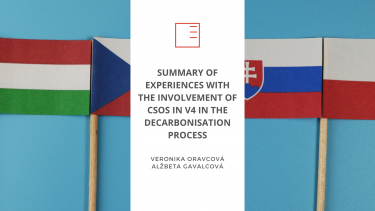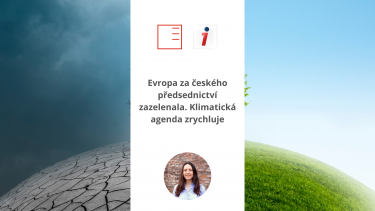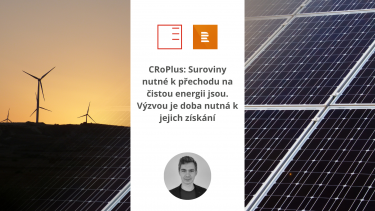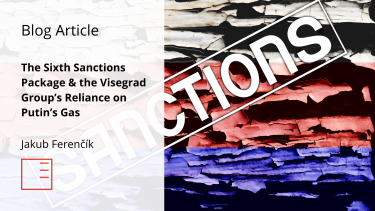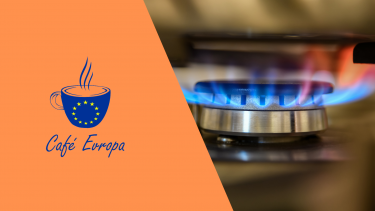SUMMARY OF EXPERIENCES WITH THE INVOLVEMENT OF CSOS IN V4 IN THE DECARBONISATION PROCESS
The project is focused on the examination of the role of non-governmental organizations in the process of decarbonization of coal regions in V4 countries (Czech Republic, Hungary, Poland, Slovakia). The aim of the project is to describe the best and worst practices of the individual processes for Serbia, who awaits the transformation of its energy mix, largely based on coal. The examined V4 countries have had a slightly different share of coal in their energy mix, while the largest one being in Poland and the second largest one in the Czech Republic, followed by Hungary and Slovakia. There are many similarities and differences in their takes on decarbonisation, thus providing different range of experiences.
Show more PDF

SUMMARY OF EXPERIENCES WITH THE INVOLVEMENT OF CSOS IN V4 IN THE DECARBONISATION PROCESS
Projekt je zaměřen na zkoumání role nevládních organizací v procesu dekarbonizace uhelných regionů v zemích V4 (Česká republika, Maďarsko, Polsko, Slovensko). Cílem projektu je popsat nejlepší a nejhorší praxi jednotlivých procesů pro Srbsko, které čeká transformace jeho energetického mixu založeného z velké části na uhlí. Zkoumané země V4 mají mírně odlišný podíl uhlí ve svém energetickém mixu, přičemž největší je v Polsku a druhý největší v České republice, následuje Maďarsko a Slovensko. V jejich přístupu k dekarbonizaci existuje mnoho podobností i rozdílů, a poskytují tak různou škálu zkušeností.
Show more PDF

iDNES: Major reform of emission allowances coming, will make fuel and coal more expensive
Against all odds, the EU is sticking to its goal of becoming climate neutral by 2050. The next step is a major reform of emission allowances, tentatively agreed by EU Council and European Parliament negotiators just before Christmas. Emissions trading (ETS) will also apply to buildings and road transport from 2027. Our Senior Researcher Kateřina Davidová commented on this issue for iDNES.
Show more
iDNES.cz: Europe has turned green during the Czech Presidency. Climate agenda accelerates
The solution to the energy problems related to the war in Ukraine and Russian gas supplies was clear to the EU. It will lie in energy savings and, above all, in clean energy sources. What will energy reform look like and what plans does the EU have? Our Senior Research Fellow Kateřina Davidová commented on the Green Deal and the impact of the Czech Presidency on this topic.
Show more
CRoPlus: The raw materials needed for a clean energy transition exist. The challenge is the time needed to gain them
The transition to clean energy requires sufficient critical resources to enable this transformation. Consumption of these materials is expected to grow significantly in the future. How will the EU's decarbonisation efforts evolve in the future? This topic was discussed by our researcher Michal Hrubý in the Studio Leonardo programme of Český rozhlas Plus. According to Hrubý, the problem is not the lack of resources, but the time it takes to obtain the raw materials. In this context, he draws attention to a new legislative initiative of the European Commission, which aims to better coordinate the time of extraction of critical materials.
Show moreEkonews: It won't work without a dig in your own "garden". The EU needs raw materials to transform the energy sector
The energy transition and decarbonisation of transport require minerals and metals, the extraction of which is mainly controlled by China. Clean energy technologies are much more material intensive, but Europe has limited access to these raw materials. Our researcher , Michal Hrubý, provided Ekonews with a commentary on the topic of clean energy and minerals.
Show moreE-mobility: An OPPORTUNITY for Central-Eastern Europe
We would like to invite you to a conference on the occasion of the Czech EU Presidency on the topic: E-mobility: an OPPORTUNITY for Central-Eastern Europe. The conference will take place on 17th October 2022, 13:00 - 16:00 at the European House, Jungmannova 745/24, Prague & online.
Show more PDF
E-mobility: An OPPORTUNITY for Central-Eastern Europe
Rádi bychom vás pozvali na konferenci u příležitosti českého předsednictví EU na téma: E-mobilita: PŘÍLEŽITOST pro středovýchodní Evropu. Konference se uskuteční 17. října 2022, 13:00 - 16:00 hod v Evropském domě, Jungmannova 745/24, Praha & online.
Show more PDF
BLOG: The Sixth Sanctions Package & the Visegrad Group’s Reliance on Putin’s Gas
Jakub Ferenčík wrote a blog on the current topic: The Sixth Sanctions Package & the Visegrad Group’s Reliance on Putin’s Gas. Russia's aggression in Ukraine has necessitated another package of sanctions, this time in the energy sector. Due to the lack of alternatives for gas supplies, the Visegrad Four countries had a problem with the implementation of the latest sanctions package. In the end, the EU found a consensus and introduced exemptions for the Czech Republic, Slovakia and Hungary.
Show more PDF
INVITATION: Café Evropa online: The future of European energy - how to ensure stable and clean energy sources without Russia?
We would like to invite you to the Café Evropa debate on 21 March at 17:30 on the topic "The future of European energy - how to ensure stable and clean energy sources without Russia?". The Russian invasion of Ukraine has, among other things, further fuelled the question of energy security in the Czech Republic and the EU and the future of energy in our country. The current security situation points to the need to diversify energy sources as soon as possible, i.e. to secure energy supplies from different regions and countries in order to avoid excessive dependence on Russia. There are also views in the public debate that coal extraction could be temporarily increased, which would enable some countries to cover any shortfalls in resources. Is a complete or even partial halt of Russian gas supplies to the Czech Republic and the European Union a realistic option? What impact would this have on our energy security? How much further increase in energy prices can we expect in this case? How should EU countries react and help households and industry cope with the expected increase? Could a possible temporary increase in coal extraction mean a return to fossil fuels and the end of the EU's climate ambitions? Or could the current problematic situation further accelerate the energy transition?
Show moreStaroměstské náměstí 4/1
Prague 1 - Staré Město
110 00
tel.: +420 212 246 552
email: europeum@europeum.org
https://www.europeum.org

